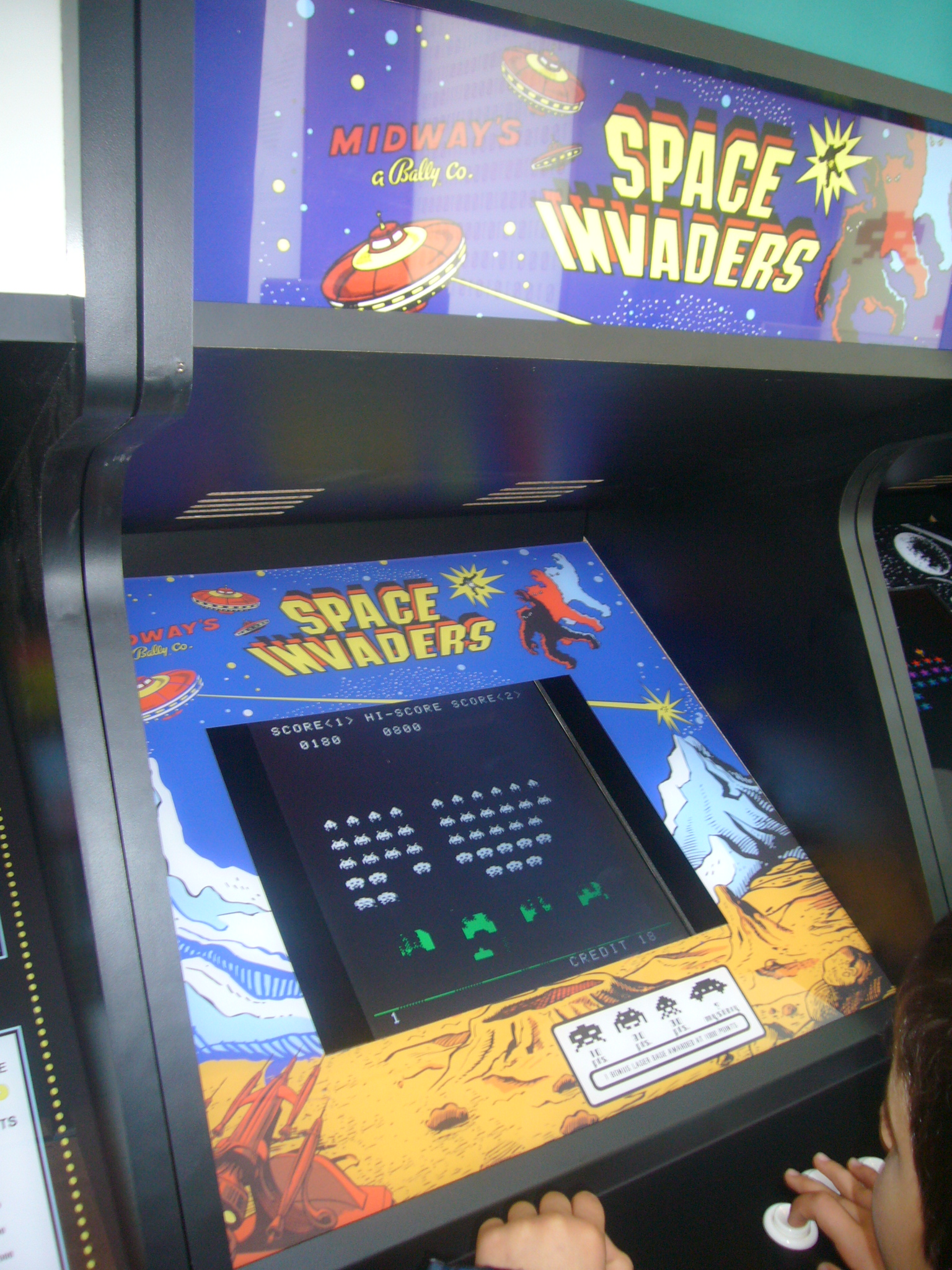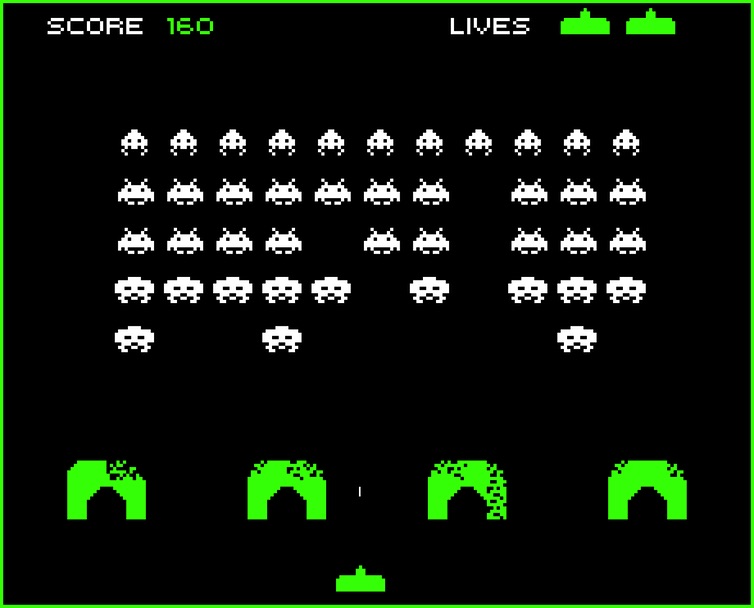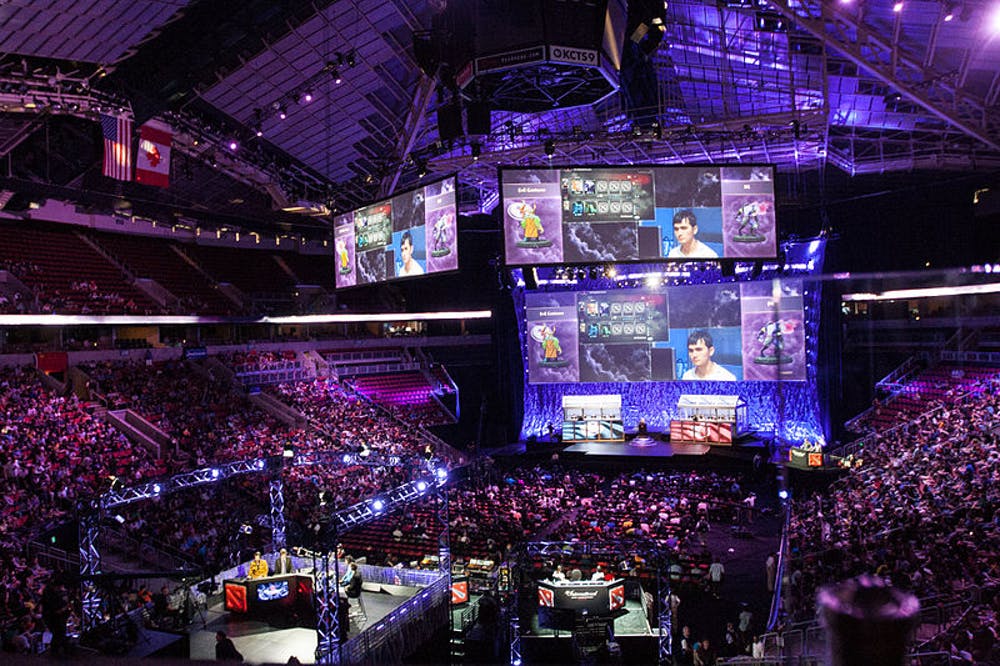
What 40 Years of 'Space Invaders' Says About the 1970s — And Today

Breaking space news, the latest updates on rocket launches, skywatching events and more!
You are now subscribed
Your newsletter sign-up was successful
Want to add more newsletters?

Delivered daily
Daily Newsletter
Breaking space news, the latest updates on rocket launches, skywatching events and more!

Once a month
Watch This Space
Sign up to our monthly entertainment newsletter to keep up with all our coverage of the latest sci-fi and space movies, tv shows, games and books.

Once a week
Night Sky This Week
Discover this week's must-see night sky events, moon phases, and stunning astrophotos. Sign up for our skywatching newsletter and explore the universe with us!

Twice a month
Strange New Words
Space.com's Sci-Fi Reader's Club. Read a sci-fi short story every month and join a virtual community of fellow science fiction fans!
This article was originally published at The Conversation. The publication contributed the article to Space.com's Expert Voices: Op-Ed & Insights.
The "Space Invaders" arcade video game, celebrating its 40th anniversary, is an iconic piece of software, credited as one of the earliest digital shooting games. Like many early games, it and its surrounding myths showcase the cultural collisions and issues current at its creation by Japanese game designer Tomohiro Nishikado.
As a game designer and teacher of games, I know how meaning is carried from designer to the mechanics of play. As a game studies researcher, I also know how games reveal myth, meaning and culture.
An analysis of "Pac-Man," for instance, shows how that game embodies many values of its day – including consumerism, drug use and gender politics. The message in "Space Invaders" is as basic as the graphics: When faced with conflict, players have no option except to blast it away.
Avoiding an enemy only delays the inevitable; players cannot move forward or back, but can only defend their space. There's not even a reason why the invasion is occurring. Players know only that the invaders must be destroyed. It's a distinct cultural perspective, emphasizing shooting over everything else.
A historical pioneer
The history of many shooting games can be traced to "Space Invaders." It's not the first – MIT's "Spacewar!" was earlier, in 1961 – but "Space Invaders" is among the most copied. Even people who never played the original "Space Invaders" have likely played the more than 100 clones of it – including the first advertising game, "Pepsi Invaders."
'Spacewar!'
Breaking space news, the latest updates on rocket launches, skywatching events and more!
The release of "Space Invaders" foreshadowed the growth of the Japanese games industry, which itself was seen as a fearsome cultural invasion of the U.S. by Japan. The tension was expressed in popular media as a defense of American individualism against the power and efficacy of Japanese collectivism and corporate culture. This tension displayed itself in popular media like the comedy film "Gung Ho" as a combined Japanophobia and Japanophilia.
"Space Invaders" also highlighted how tenuous some elements of Western identity were. The U.S. had built its sense of self on being the greatest, but was being challenged by Japanese economic growth. But it was complicated: As Japanese automakers won customers from the American car companies, they began to build their cars in the U.S. – so were they Japanese or American cars?
A game of 'Space Invaders.'
In the same way, if the American game maker Atari's biggest hit was a Japanese-made game, how American was Atari's success? In any case, millions of U.S. consumers bought the Atari 2600 game system to be able to play the hit arcade game "Space Invaders" at home. Five years later, in 1983, the games industry crumbled in large part because American-made games were not interesting and too similar to each other.
In 1985 the Japanese-made Nintendo Entertainment System ushered in a new era of home console play. That continued the challenge to the American identity: U.S. companies failed to innovate and lead, and a Japanese company filled the innovation void.
The myths of (space) invasion
"Space Invaders" also has collected some myths around it, which reveal more about society than about the game itself. The most notable legend is that "Space Invaders" was so popular that the Japanese economy ran out of the coins needed to play it in arcades. It's not true, but like many myths about games, both positive and negative, it sounds so good it's easy to champion anyway.
That fable is a prequel to larger popular fictions about games. People blame games for the decline of economies and for joblessness. The innovations created in games support technological innovations that change society and the way people socialize, yet people are also eager to blame large systemic issues like gun violence in schools on video games.
Another tale is that "Space Invaders" demand was so strong that even with multiple game machines installed, there were lines to play. Whether or not they were queuing up for their own turns, it's definitely true that people watched others play. That helped set the stage for the growth of arcades and LAN-gaming parties, precursors to professional players and today's multi-billion-dollar industry of e-sports.
History shows that games change society, pointing it toward play and creating new economies. The advent of arcades was as novel as the contemporary use of the micro-transactions common in mobile games now. Their incubation of community and spectator play spawned countless YouTube gaming channels.
Like the space invaders that descend on the player, unknown but always threatening, games scare some people. They seem to be unrelentingly approaching, different and hard to keep pace with. Games challenge players to adapt and dismantle the conventions under which people hide.
But, like playing "Space Invaders" itself, the joy comes in interacting with that change, mastering it and moving on to the next level.
Lindsay Grace, Associate Professor of Communication; Director, American University Game Lab and Studio, American University School of Communication
This article was originally published on The Conversation. Read the original article. Follow all of the Expert Voices issues and debates — and become part of the discussion — on Facebook, Twitter and Google +. The views expressed are those of the author and do not necessarily reflect the views of the publisher. This version of the article was originally published on Space.com.




